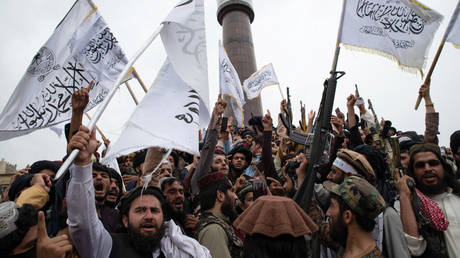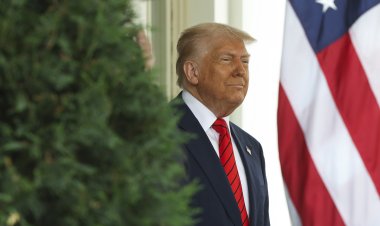Afghan Taliban official calls for banning neckties
An Afghan Taliban government official says neckties are a sign of the cross and therefore should be banned. source:TROIB RTS

The chief of Kabul’s Invitation and Guidance Directorate has argued that ties are a sign of the Christian cross
An Afghan Taliban government official has condemned the wearing of neckties, saying they’re a sign of the Christian cross and therefore must be removed from society.
Mohammad Hashim Shaheed Wror, head of the country’s Invitation and Guidance Directorate, made his comments on Wednesday in a speech aired by Afghanistan’s Tolo TV. He said he gets angry when he goes into hospitals and other professional settings and sees an Afghan Muslim doctor or engineer wearing a necktie.
“The history of the necktie is obvious in Islam,” Wror said. “What is a tie? It is the cross. The cross looks like this. It is ordered in Sharia that you should break it and eliminate it.” The Invitation and Guidance Directorate is charged with guiding Afghans on proper Islamic behavior.
Wror also cited the ties worn by television presenters. “The cross is a symbol of pagans,” he added. “The cross is a symbol of Jesus’ martyrdom. They say Jesus was hung like this.”
I don't know whether to laugh or cry about this!
— Natiq Malikzada (@natiqmalikzada) July 26, 2023
A senior official of the Taliban regime says he is extremely upset whenever he goes to hospitals and sees doctors, as well as engineers, wearing ties. According to him, ties are symbols of the Christian cross and signs of… pic.twitter.com/LFUD7h5YH5
The Taliban has a history of strict social controls but hasn’t imposed any apparel restrictions on men since retaking power in August 2021. Women are required to cover up with a burka or hijab when going to public places. The government announced on Tuesday that beauty salons must close under a ban that was imposed earlier this month.
Former President Ashraf Ghani, the country’s last head of state during the US occupation of Afghanistan, was known for wearing a traditional shalwar kameez in Kabul and often donning Western suits and neckties when traveling abroad. He fled the country – allegedly with four cars and a helicopter full of cash – when the Taliban seized Kabul during the chaotic withdrawal of US personnel from the country.
READ MORE: Taliban explains beauty salon ban












